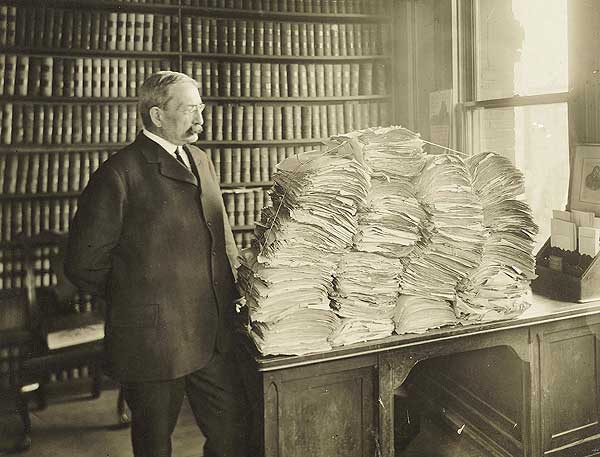 Mark L. Movsesian, St. John's University School of Law, has posted a new essay, Williston as Conservative-Pragmatist. It is forthcoming in a symposium issue of the Southern Illinois University Law Journal. Here's the abstract:
Mark L. Movsesian, St. John's University School of Law, has posted a new essay, Williston as Conservative-Pragmatist. It is forthcoming in a symposium issue of the Southern Illinois University Law Journal. Here's the abstract:This short piece is a contribution to a forthcoming symposium on the work of legal historian N.E.H. Hull. Professor Hull argues that the academics behind the First Restatement project – men like William Draper Lewis, Arthur Corbin, and Wesley Hohfeld – were “progressive pragmatists.” These men wanted reform, but they understood the need to accommodate anti-reform traditionalists like Samuel Williston, the Reporter on the Restatement of Contracts. In my contribution to the symposium, I demonstrate that, conventional wisdom notwithstanding, Williston did not oppose reform in the Contracts Restatement. In fact, he was largely responsible for the Restatement's most thoroughgoing innovation, the doctrine of promissory estoppel. If, as Professor Hull maintains, the academics behind the Restatement project were “progressive-pragmatists,” Williston is best understood as their conservative counterpart: a “conservative-pragmatist.”
The photo is Williston with a draft of his contracts treatise.